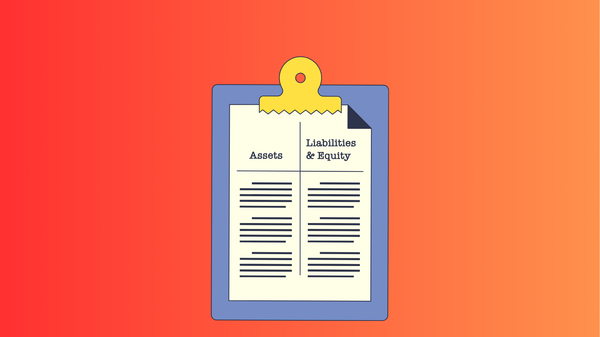BIG READ | The four sins therapy shares with journalism, and how to fix them
Failure to keep up with technology, mistreating workers, emphasising despair over hope, lack of diversity and erosion of trust.

As I grapple with a stubborn relapse of my head bugs, I've been thinking a lot about the profound chaos in the mental health sector right now that is dismantling a lot of received wisdom.
Much of this churn owes to the rise of technology that's threatening to upstage conventional systems, notably psychotherapy. But the real reasons for the unease in the mental health sector at large and therapy specifically run a lot deeper. And it struck me that the field shares many of these catalysts of upheaval with my former profession – mainstream journalism.
Today I present my field notes, if you will, based on my understanding of the four big systemic problems common to mental health and journalism, and how we may find solutions to them. I find this sort of comparative learning to be powerful and clarifying. Let me know if you agree.
Urgent appeal for support
Sanity's readership and free subscriber base are growing rapidly - thank you - but I depend on a tiny group of paying supporters to cover my bills, including impending renewal of the Ghost software that I use to host this site. And the paying base is shrinking, as mysterious tech issues continue to torpedo card payments. I am aiming to raise USD 2,000 to make up for some of the losses, take care of the costs, and keep the lights on. Please contribute what you can, nothing is too small. And do share Sanity with your friends. Thanks a lot.
Support my work from India
Or from elsewhere in the world
Shared errors of mental health and journalism
1. Failure to adapt to technology-led disruption
Problem summary
Journalism and mental health have mirrored each other's prickly relationship with technology. They branded technology as the 'enemy', dismissed tech-based products and services as inferior instead of engaging with, learning from, and improving them, before realising their errors and struggling to fix the damage. This left the gates open for tech-powered actors, often unscrupulous ones, to dictate the future of both the industries - at a grave cost to their respective end consumers.
One of the biggest failures of legacy media bosses was their arrogant refusal to buy into the rise of digital media. They scoffed at the emergence of new digital-first outlets, until the latter carpet bombed their traditional turfs and ran away with market share. Media educators and leaders also neglected to equip journalists with technology tools that'd help improve both how they worked and what they produced. They made minimal investment in digitising workflows or training journalists in data analysis or interactive storytelling techniques to keep pace with changing audience needs.
The lack of tech leadership from within journalism left the door open for opportunistic 'intermediaries', such as social media platforms and misinformation peddlers, which hijacked the direction of the news business by manipulating the tastes and behaviours of news consumers. How the race for likes and shares hastened the unraveling of the journalism industry's ethics – and imperiled society at large – has been the subject of much lament.
Similarly, the mental health sector has placed woefully little focus on developing technological competency among professionals. Psychology curricula rarely explore the potential of technology in diverse areas, eg in reducing the burden of operations and administrative tasks (digital record keeping, practice management systems) or as a clinical ally (tele mental health, evidence-based digital interventions). Younger patients expect digital-first or hybrid care models. Alarmingly, many are using clinically unsound AI 'therapy' bots as their first port of call, bypassing human therapists altogether. But the establishment discourse around therapy remains wedded to the romance of the 50-minute in-person session, entirely absenting the profession from the technology conversation.
This stodginess has again allowed giant tech companies, as well as VC-funded upstarts, often with little respect for and understanding of the intricacies of mental health care, to dictate the future of the industry. Brace for impact.
2. Worker exploitation
Problem summary
The journalism industry projects itself as the defender of democracy and the bastion of freedoms while practicing tyrannical disdain for the wellbeing of journalists. The mental health sector claims to protect the wellbeing of the world while failing to create safety for those who labour for it.
Early in my career in active journalism, come appraisal season we'd joke that it was time for our bosses to trot out the same annual refrain: "The market is terrible. Business was bad this year. Here, accept these non-inflation-adjusted peanuts as reward for your hard work. Hope this motivates you to work even harder." That joke is just as likely to land today, as journalism continues to normalise worker exploitation that destroys the wellbeing of individual workers while eating away at the industry's very foundations.
Unpaid or poorly paid 'internships' are the default pathway to enter the profession. Journalist compensations often don't justify the cost of education, living costs, and the relentless pressure to perform in a hypercompetitive arena with frequent exposure to second-hand trauma and moral injury. As a result, only candidates with exceptional privilege – and personal passion that can seem unhealthy and downright stupid to outsiders – can afford a career in journalism.
Rampant job insecurity means workers are powerless to push back against mismanagement and a pervavise culture of overwork. As botched business decisions and disruption trigger mass layoffs, those who remain are forced to take on multiple roles: write, edit, produce YouTube shows and podcasts, market content on social media, run events, all while staying switched on 24/7 at the cost of their personal lives so that their employers can stay ahead in the 'Breaking News' shit show.
Media companies increasingly appoint contingent workers without benefits, job security, or career growth. Meanwhile, freelancers and independent operators are getting squeezed by AI content farms, shrinking fees, and inordinate payment delays.
Instead of fixing this diseased culture, journalism celebrates it in the name of passion and public service. Broken, burnt out, and ultimately driven away from their calling. This is the depressing trajectory of far too many journalists' lives today.
The mental health sector has the same propensity to weaponise nobility and passion against workers. Exhibit A: Think unpaid internships are bad? Psychology students often have to pay for internships that they hope will address the deficits in their classroom education out of their own pockets. This is a particularly onerous burden for candidates from marginalised and vulnerable backgrounds.
For all that, many interns walk away with little training of value. Students often spend their entire internship writing inane marketing blogs and Instagram posts, instead of learning actual, useful therapy skills.
Working in mental health also comes with the expectation of constant availabilty. If the chronic shortage of trained professionals wasn't bad enough, now therapists must contend with assembly-line caseloads enforced by employers who are interested in maximising revenue over building a patient- and therapist-centred culture. The rise of on-demand therapy via apps and therapy 'matchmaking' platforms has compounded the stress.
Mental health care also extracts a heavy emotional toll from workers. But far from offering compassion and fair compensation, the field has traditionally glorified self-sacrifice. Demanding reasonable workloads and a dignified income is often stigmatised as a betrayal of the profession's lofty mission.

3. Emphasising narratives of despair over hope
Problem summary
Negativity bias in the news distorts public perception of the world. It deepens feelings of disempowerment, learned helplessness, and compassion fatigue, and ultimately creates civic apathy.
Similarly, when the mental health sector gives primacy to pathology and trauma over the possibility of recovery and post-traumatic growth, it drains hope from patients and caregivers. Clinical training equips practitioners to codify human suffering into 'disorders', but it underplays the importance of understanding the human capacity for thriving despite great adversity. The upshot? A lot of talk around symptoms and risk factors of mental illness, and not enough on protective factors.
Stories higlighting scientific research and innovation, human agency, and recovery are pushed to the margins. And mental health professionals themselves have done little to challenge the despairing tone.
This explains why the terms 'mental health' and 'mental illness' often feel bizarrely conflated. We pretend to talk about health, but we give all the oxygen to illness. Prevention and promotion of mental health have remained utopian ideas far removed from practice.
4. Lack of diversity and inclusion that breeds elitism and disconnection, and in the worst case - loss of audience trust
Problem summary
Mainstream journalism and mental health are often accused of homogenised workforces, lacking representation from marginalised and vulnerable groups. This has eroded their connection with their audiences and weakened trust.
Here's one example of just how insular journalism can be: A new report on UK journalists has found that they are overwhelmingly White (90%), university educated (91%), non-religious (71%), and from a privileged background (as defined by their parents’ occupation) (71%). Little wonder that the mainstream media is frequently out of touch with the struggles and aspirations of ordinary people. You can see this play out in the shocked reactions and 'mea culpa' editorials churned out by news organisations each time they are faced with a seismic development they did not see coming.
Journalists' place in the life of the news consumer is being increasingly occupied by content creators and influencers, who have managed to establish a more intimate and direct relationship with their audiences. They use technology and the internet's power of building communities to create strong personal brands that snooty old media finds hard to rival. Yet 'pureblood' journalists continue to hold creators and influencers in contempt. While accurately pointing out the risk of mis- and disinformation from non-journalist creators, they've been reluctant to learn what works for them.
A similar elitism is at works in parts of the mental health community. Psychology has a severe diversity crisis, with chronic underrepresentation of marginalised communities (and, in one telling twist, men). Clinical approaches and research continue to hold aloft Western, individualistic perspectives, almost exclusively articulated in English. The field has failed to do enough to propagate culturally appropriate interventions for diverse populations, fomenting mistrust among communities that have long histories of harm at the hands of the mental health care system.
Licensed professionals often view peer support specialists, mental health coaches, community healers, and mental health content creators on social media, including those who speak from lived experience, with suspicion or derision. In India, we recently had a social media storm over whether clinical psychologists are the only 'true' purveyors of therapy, and if 'inferior' counseling psychology should be banned altogether. Imagine.
This kind of professional gatekeeping often goes beyond critiquing the evidence of the safety and efficacy of various interventions, degenerating into personal swipes that reek of insecurity. It ignores the reality that we need all kinds of support to reach the millions who can never access traditional therapy. And it gives away the sector's inability to come together as a unified force at a time of massive disruption.
Solution: Shift your mindset. Now.
For everyone in the sector: Go beyond the shallow ChatGPT-/app-/bot-hyping headlines to make sense of how technology is structurally changing mental health care.
For psych academics: Love it or hate it, technology is dismantling a lot of musty old certainties in this space at warp speed. Get talking in the classroom. Get real.
Do not let students get trapped in moralistic "all tech is bad" thinking that won't help them or the people they want to serve. Help students find ways in which tech can be their ally as professionals - there are many. Build sandboxes where they can play with these elements.
Update your curricula. Invite VCs, tech founders etc to give kids a reality check. (Yeah, I am no fan of techno solutionism, but I'm even less of a fan of head-in-the-sandism.) And cede space to end users. They will tell you what you can't/don't want to hear.
Identify areas where the rise of tech will necessarily make redundant humans, and figure out ways for students to derisk those bits of their career.
If you're in the mood for more brutal pragmatism: Teach your students to help build the tech that will weed out the ineffective human hand wherever it exists, in service of the end user.
Talk about business and entrepreneurship. Give kids the safety and courage to believe that they are building a livelihood, not signing up for a life of righteous privation. Many of them will need to build small, solo businesses. At the moment, they are struggling because they have zero tools to go on that journey.
For tech companies building in mental health: You cannot have ethically run and clinically sound businesses without ceding leadership space to trained mental health professionals (and lived experience experts). Work closely with the academia to help build capacity and human resources for these new-age businesses.
Don't exploit therapists to maximise patient intake. Ask your tech crew to partner with therapists so that you engineer products and services that do no harm.
For students and young professionals: Acknowledge the power imabalance between the therapist and the patient, especially if you, the therapist, come from a place of privilege.
Don't rely solely on your teachers and employers for upskilling and plugging critical knowledge gaps. Embrace self-learning.
Be open to careers beyond therapy.
What do you think of these field notes? Write to me, and I will publish select responses in a future edition.






